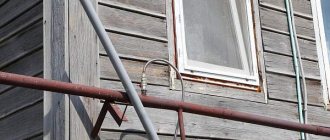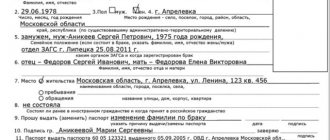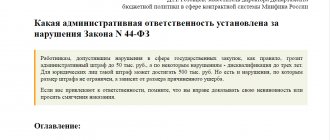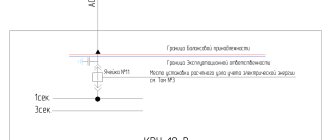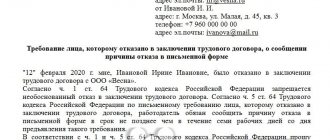Art. “Illegal entry”: general composition
When considering a case in court, many factors and signs indicating the occurrence of an act will be taken into account.
The crime will be considered committed the moment the criminal enters the home and it does not matter whether he carries out his plan to the end or not.
The object of the crime is considered to be residential premises designed for permanent or temporary residence of people. Let's look at the main categories:
- private houses of citizens;
- apartments;
- dorm rooms;
- country houses;
- temporary premises or buildings set aside for people to stay there.
At the same time, there is a list of premises that do not belong to the category of “housing”: a barn, a garage, a barn, a woodshed, a barn, a cabin on a ship or a train compartment.
To confirm ownership of a particular premises, documents must be submitted, these could be:
- certificate of ownership;
- warrant for an apartment;
- real estate lease agreement;
- rental agreement, etc.
Penetration can be secret or overt. But at the same time, if the owners of the home themselves allowed the criminal into the house, then this does not apply to the qualifying feature.
Signs of crime will play a huge role in sentencing in court:
- signs of forced entry into doors or windows;
- things and objects scattered around the rooms, etc.
Visiting someone else's property will not always be considered unauthorized. There are exceptions when law enforcement officers or specialized services can enter premises without the consent of residents. This mainly happens for:
- suppression of illegal actions;
- to detain citizens suspected of committing a crime;
- for carrying out rescue operations;
- to determine the causes of accidents.
Therefore, in the listed cases, persons performing their duties to prevent emergencies or catch a criminal will not be punished for home invasion.
To get the most detailed advice on your issue, you just need to follow any of the suggested options:
- Request a consultation using the form on our website
- Or just call the number: 8 800 350-83-74
Unlawful entry into a home, committed against the will of the person in it, entails:
- Fine up to 40,000 rubles. or in the amount of the criminal’s income for 3 months.
- Mandatory work up to 460 hours.
- Arrest up to 3 months
- Correctional labor for up to a year.
Peculiarities
It is possible to enter someone else's residential premises (Article 25 of the Constitution of the Russian Federation) only under the following conditions:
- Permission from the owner or resident.
- In the case where this is established by federal law.
- When a court decision is made.
Immunity to housing extends only to those categories of citizens who can document their belonging to this home. This right applies to the following citizens:
- Owner.
- Citizens living under a lease, sublease or rental agreement.
- Persons living temporarily in an apartment or house at the will of the owner legally.
According to Article 139 of the Criminal Code of Russia, the following real estate belongs to housing:
- Apartment.
- A room in a hostel or hotel.
- Individual residential construction project.
- Garden house or change house.
- Prefabricated houses.
- Residential buildings intended for housing workers at construction sites.
In other words, this is a living space where a person lives and stores his belongings, property or documents. The exception will be outbuildings in the form of a cellar, barn, as well as structures erected without permission from authorized bodies.

Aggravating circumstances
According to the Criminal Code, illegal entry into a home associated with violent actions or the threat of their use entails:
- Fine up to 200,000 rubles. or in the amount of the attacker’s income for 1.5 years.
- Correctional/forced labor.
- Imprisonment.
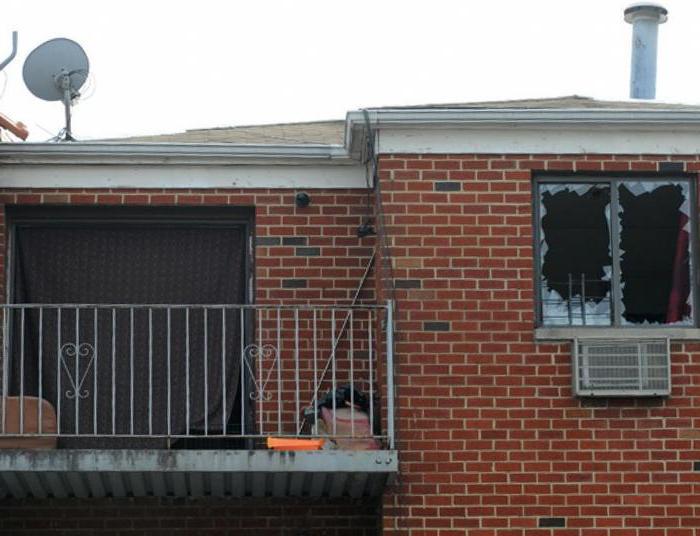
The duration of the last two punishments is up to 2 years. Illegal entry into a home can be committed using one's official position. In this case, the perpetrator may face:
- Fine of 100-300 thousand rubles. or in the amount of income for 1-2 years.
- Deprivation of the opportunity to carry out activities or be in positions established by a judge for 2-5 years.
- Forced labor for up to 3 years.
- Arrest up to 4 months
- Imprisonment for up to 3 years.
Types of liability under Article 139 of the Criminal Code
An important aspect that makes it possible to correctly classify the act in relation to the named article is that the offender had to get into the citizen’s house without obtaining his consent to do so.
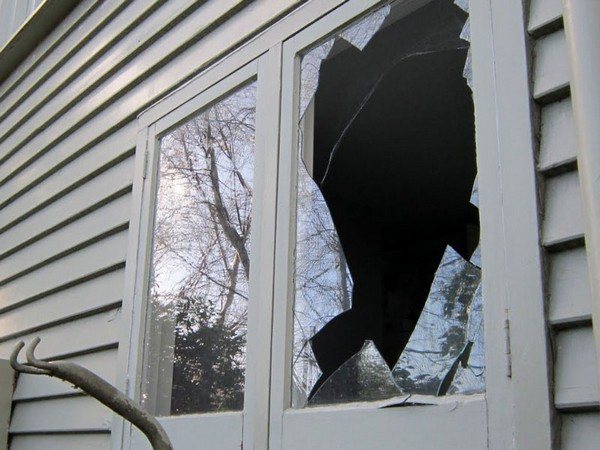
There are several types of punishment under Article 139 of the Criminal Code of the Russian Federation
Important ! In theory, if the owner of a house or the people living there allow another person to enter, the act cannot be called illegal.
In practice, it happens that criminals mislead the owners or residents in order to get into the house. However, you will have to try hard to prove that the offender deliberately deceived, wanting to commit a criminal act.
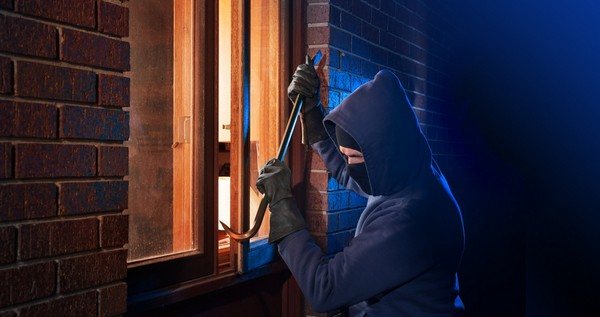
Sometimes, in parallel with this article, those who entered the home are punished under the article “Fraud”
Here the offense relates not only to the article mentioned above, but is also qualified under Article 159 of the Criminal Code (“Fraud”).
The Criminal Code of Russia prescribes the following types of punishments for the act we are considering.
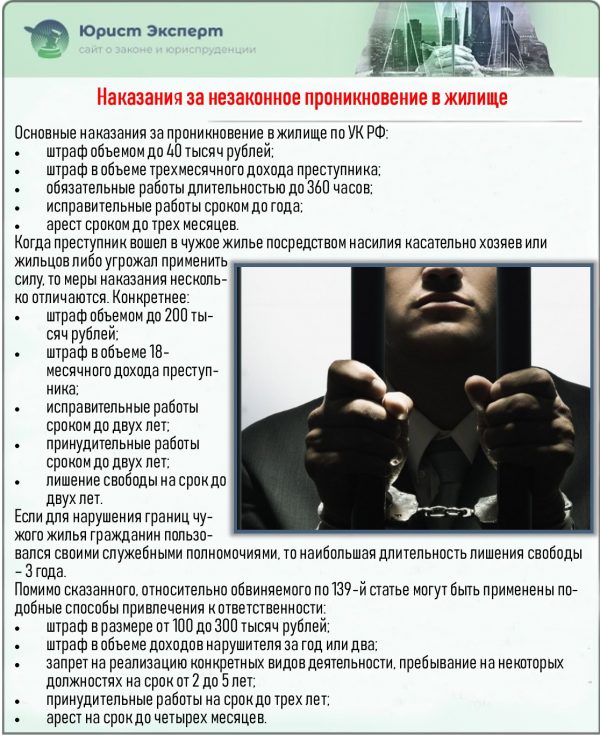
Penalties for illegal entry into a home
From the above, we can conclude that the Criminal Code considers the use or threat of force and abuse of official powers as aggravating circumstances.
Punishment under the article of the Criminal Code of the Russian Federation for illegal entry into a home
In order for law enforcement agencies to be able to stop an attempt to illegally enter a home, conduct pre-investigative actions, establish the fact of a crime and the circle of suspects, it is necessary to file a crime report. This can be done in writing, after the crime has been committed, or directly from the scene - orally by telephone. To stop the violation, employees of the Ministry of Internal Affairs are required to go to the address indicated by the applicant.
When contacting the department of the Ministry of Internal Affairs, citizens can verbally report a crime committed. In this case, their testimony will be entered into the protocol. If the message is submitted in writing, the sample application for illegal entry into a home must contain the following points:
- information about the body or official of the Ministry of Internal Affairs to which the application is submitted;
- detailed information of the applicant (full information must be provided, as anonymous messages will not be considered);
- information about all the circumstances of illegal entry into residential premises - date and time, address of residential premises, method of entry, etc.;
- information about the applicant’s rights to residential premises (for example, you can provide a stamp on permanent registration);
- request to conduct an investigation and initiate a criminal case;
- personal signature and date.
We invite you to read: Liability for arson of a car under the Criminal Code of the Russian Federation
The application is registered in the KUSP (Crime Reporting Book), and the citizen is given a written notification coupon with a registration number. This number will allow you to control the timing of the inspection by the Ministry of Internal Affairs.
Art. 139 of the Criminal Code of the Russian Federation clearly divides crimes by composition, and accordingly determines the punishment.
In accordance with Part 1, persons who entered someone else's premises without the consent of the residents will be held accountable. The penalty may be as follows:
- penalties up to 40 thousand rubles;
- correctional work for no more than 1 year;
- compulsory work up to 360 hours;
- imprisonment for up to 3 months.
Punishment for committing a crime with violent actions or threats of influence is described in the second part of Art. 139 of the Criminal Code of the Russian Federation:
- a fine of up to 200 thousand rubles;
- correctional or forced labor for up to 2 years;
- imprisonment up to 2 years.
What will be the threat to officials who take advantage of their official position (police officers, public utilities)?
- the fine varies from 100 to 300 thousand rubles;
- restriction of freedom up to 4 months;
- imprisonment for up to 3 years;
- forced labor;
- prohibition from holding certain positions for up to 5 years.
Even if the villain did not complete his criminal plan, but the attempt was made, then at trial, when assigning punishment, the following circumstances will be taken into account:
- whether this is the first time a violation of the law has been committed;
- the owner’s property was not damaged;
- the owners of the house were not injured;
- the culprit has not previously been prosecuted in criminal cases.
The legislation of the Russian Federation regulates that private property includes not only apartments or houses, but also other non-residential premises, for example, the offices of an enterprise, but they are not used for residence. At the same time, if non-residential premises are an inseparable part of residential premises, for example, a storage room used for storing things, then such a crime can be classified as unauthorized entry, and this will be punishable under Art. 139 of the Criminal Code of the Russian Federation.
The victim will have to report the crime committed to law enforcement agencies, only after that the search for the attacker will begin.
This statement can be made orally or in writing. During an oral report, all information told by the victim will be recorded by the police officer in the interrogation report. Once completed, the document is signed by the applicant and the employee who received the report of the crime.
An example of filling can be found on the Internet. The main points required for inclusion in the form are established by the Criminal Code of the Russian Federation, so you must indicate:
- the name of the police department where you are applying to report a crime, as well as the name and position of the head;
- personal information of the applicant (full name, residential address, contact telephone number);
- circumstances of the incident (date, time and place of the crime);
- witness data (full name, address and telephone number);
- list of missing property;
- express your demand for the perpetrators to be brought to justice;
- sign and date the application.
We invite you to read: What will be the punishment for fictitious registration of foreign citizens
When submitting a document to the police, it must be registered in a special journal. And to confirm this fact, the applicant will be given a notification form with an assigned serial number.
Forced entry
The law provides for a number of situations when breaking into an apartment or other living space is a necessary measure. Such circumstances include the elimination of danger that may pose a threat not only to the interests of the individual and society, but also to the state.
In extreme situations, the following have this right:
- Firefighters extinguishing fires.
- Employees of the Ministry of Emergency Situations and law enforcement agencies.
- Representatives of management companies that ensure the operation of house communications.
What will be the procedure if an emergency situation arises that requires entry into a home when there are no residents living there for a long time?
Housing legislation considers this situation in this way: it is possible to enter someone else’s territory of an apartment or household, provided that other methods do not bring the required effect.
ATTENTION! According to criminal law, burglary is permitted only to the extent of causing damage that will not exceed the damage from the accident.
According to the Russian Housing Code (Article 3), invasion of a home without the permission of living citizens can only occur in those situations prescribed by federal law, and only in cases where it is necessary to save citizens and their property.
Home invasion is also permitted against citizens who are suspected of committing illegal actions that entail criminal liability.
It is worth noting that the management company will not be responsible for breaking the lock mechanism in the situations described above, provided that the situation endangered neighboring property.
Police officers, if they have a special warrant, have the right to freely enter an apartment or house, since they are responsible for maintaining order and detecting crimes. They are allowed to enter the territory for the purpose of carrying out operational search activities, including searching for citizens who have committed illegal actions.
The bailiff can also enter the residential area without inviting the residents, provided the appropriate documentation is available . However, the time frame for them is from 6 a.m. to 10 p.m.
Watch the video: Article 139 of the Criminal Code of the Russian Federation. Violation of the inviolability of the home
ATTENTION! In case of entry into an apartment or house without legal grounds by police officers, judicial authorities or representatives of the management company, it is envisaged to apply to the judicial authorities with a statement.
Explanation of concepts
In the norm under consideration, the housing standard is an individual house, which includes premises for various purposes, regardless of the type of property, included in the housing stock for the temporary or permanent stay of people, as well as objects not included in the stock, but used for short-term stays of citizens.
This could be an apartment, a building, a room in a hotel or hostel, a summer house, a change house, a temporary structure, etc. Outbuildings, garages, barns, and other objects that are separated from residential buildings and are not used for living do not qualify as housing. The rule in question does not apply to train compartments or ship cabins, since these objects are parts of vehicles.
Summary
If your home has been broken into, you should call the police to investigate. If you have seen a criminal, then a description of his appearance and signs will help to quickly capture the villain. If found guilty, he will be prosecuted to the fullest extent of the law.
Illegal entry into housing means entering there without the consent of the residents or in their absence. To be held accountable, it is necessary to prove that the guilty person acted intentionally and did not have independent rights to the property. Punishment for illegal entry into a home is established by Article 139 of the Criminal Code of the Russian Federation, and a real prison term is threatened only for the use of physical force or the threat of its use.
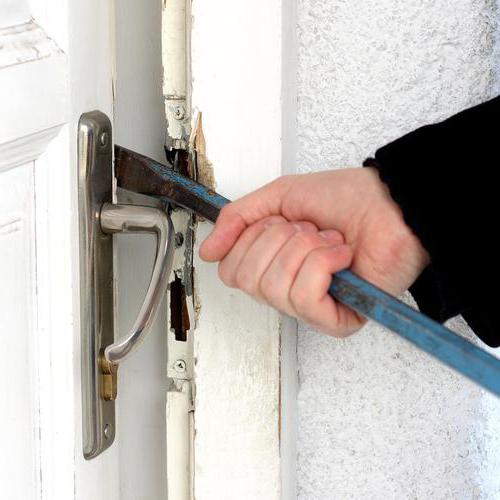
ATTENTION! Due to recent changes in legislation, the information in this article may be out of date! Our lawyer will advise you free of charge - write in the form below.
Violation of the inviolability of the home: what is it - a crime or an offense...
Currently, Russia is on the threshold of another reform aimed at humanizing criminal legislation.
If we analyze the bill “On Amendments to the Criminal Code of the Russian Federation,” we can note that the main changes will be made to the provisions of Section VII “Crimes against the Person.” It is proposed to replace criminal liability with administrative liability in relation to a number of acts, as well as to introduce administrative prejudice into some crimes. Taking into account the decriminalization of Part 1 of Article 139 of the Criminal Code of the Russian Federation, the Code of Administrative Offenses of the Russian Federation is supplemented with Article 5.57 “Illegal entry into a home.”
It seems that the current attempts to reform the current criminal legislation are inappropriate and inconsistent, and therefore destructive for the domestic legal system.
On the one hand, Russia ratifies a number of international legal documents, including the International Convention “On the Protection of the Rights and Freedoms of Man and Citizen,” which, as a consequence, imposes on it the obligation to ensure real protection of the proclaimed human rights and freedoms throughout its territory . On the other hand, the state deprives its citizens of effective legal protection of fundamental human and civil rights in the form of criminal law prohibitions.
Thus, according to the public reception office of the Commissioner for Human Rights in the Russian Federation, “On February 12, 2009, the European Court of Human Rights received 8 further rulings against Russia, in total the number of rulings on human rights violations against Russia reached a large figure - 700, 57 of them already this year.”
Subjective part
The Criminal Code of the Russian Federation characterizes illegal entry as an active action. It is expressed in unlawful entry into a premises against the will of the subjects using or owning it. When qualifying according to the main elements, the method of committing the act will not matter. At the same time, abuse of trust and deception for subsequent unlawful entry into premises will not constitute a crime.
The Criminal Code qualifies illegal entry as a formal crime. In subjective terms, the act is committed with direct intent. In parts 1 and 2, the culprit may be a sane 16-year-old individual. According to Part 3, the subject is a special one. He is a citizen who has a certain official status, which he uses when committing illegal entry.
Types of liability
Violation of the inviolability of a residential property is subject to criminal penalties. Such
The actions are not considered a serious crime, but committing one can result in imprisonment. Entry is considered a criminal offense if certain conditions are met, namely if it occurred in the following ways:
- Picking the lock on the door.
- Free penetration.
- Intrusion through a window opening.
- Using coercive actions against living citizens.
- By deception, as well as by taking advantage of his official position.
At the moment, based on the norms of the Russian Criminal Procedure Code, a case of breaking and entering can only be initiated if the victim has filed a statement.
Exceptions
Intrusion into premises, even against the will of the subjects, committed on the basis of the provisions of regulations does not constitute a crime. In particular, we are talking about the Code of Criminal Procedure, the Law “On Police”, the Federal Law “On Operational-Investigative Work”, etc. In particular, the exercise of the right of police officers to invade premises, land plots that belong to individuals or are occupied by organizations does not form part of the following:
- When saving property or the lives of citizens, ensuring the safety of the population, including in emergency situations and riots.
- To detain persons suspected of criminal activity.
- To stop misconduct.
- when establishing the circumstances of accidents.
These provisions do not apply to buildings and premises of diplomatic missions, consulates, and divisions of international organizations. The performance of operational-search activities, including entry into the premises at the will of at least one of the persons constantly using it, or in his absence, but with the permission and accompanied by the administration of a holiday home, hotel, sanatorium, tourist center, etc., does not constitute illegal entry similar institution.
Special cases
In practice, situations are quite common when not only law enforcement agencies, but also the courts are in some confusion. In such cases, the owners of the premises do not always know how to behave. We are talking about relatives who believe that they can invade the premises without any obstacles, without asking permission. Many young families have faced such situations.
We suggest you read: How long do you need to live in marriage to obtain Russian citizenship?
Often, the parents of one of the spouses literally break into the house at the time when they want it. The situation becomes significantly more complicated when a child is born. Grandfathers and grandmothers seek to impose their ideas about the proper care and upbringing of children. Meanwhile, such actions can well be considered as
. The behavior of relatives is also unlawful in cases where they invade premises that belong to them, but in which they are not permanently present. For example, many parents of newlyweds believe that by giving them an apartment, they can visit it freely. This is far from true. In such cases, there is a direct violation of the Constitution. People occupying the premises must have
which no one can interfere with. The situation, however, is complicated precisely by the presence of family ties. In most cases, victims do not seek to contact law enforcement agencies and courts. Actually, such a reaction is quite logical. According to moral standards, it is not customary to sue relatives, especially not your own. Meanwhile, visiting grandparents causes discomfort.
Eviction of a citizen who is not registered in this apartment
A citizen who lives in an apartment without registration and is not a relative does not have the right to stay in it without the permission and consent of the owner. If a citizen does not leave the apartment and there are grounds to initiate a criminal case for hooliganism or fraud in real estate, then contact law enforcement agencies, unless of course this concerns the rental agreement. In this situation, you will need to go to court to protect your violated rights.
Eviction of a spouse who is not the homeowner
A spouse who is the owner of an apartment or other housing can file a claim. If a spouse is registered in this apartment, it is possible to evict him only by a court decision; law enforcement agencies will not help you here, the only exception by law is the eviction of a minor child, or a future purchase and sale agreement (allocation of a share in the house) if the minor has a share without permission guardianship and trusteeship cannot be formalized in the future.
The above list of eviction from a residential premises for illegal residence is not exhaustive. Our lawyers will help you understand this situation, and correctly draw up a procedural document, and defend your interests in court. When the issue of protecting violated rights arises, you need a professional who will help and competently put your offenders in their place.
ATTENTION: do not miss the opportunity to consult a lawyer for free without a phone through commenting - by subscribing to our YouTube channel.
Way out
There are two ways to solve the problem. In the first case, it is advisable to try to explain to relatives that their frequent visits are undesirable. Of course, this must be done in the correct form so as not to bring even greater problems to the family. If the situation begins to get out of control, there is a negative influence of relatives on the child’s psyche, or property damage is periodically caused, then it’s time to contact the police with a statement.
Of course, you should first warn visitors about upcoming actions and ask once again to stop sudden visits. If this does not help, the problem can only be resolved through the courts. Of course, this can lead to quite a serious conflict with relatives. However, in such cases, the peace of one’s own family and the mental health of children come first.

